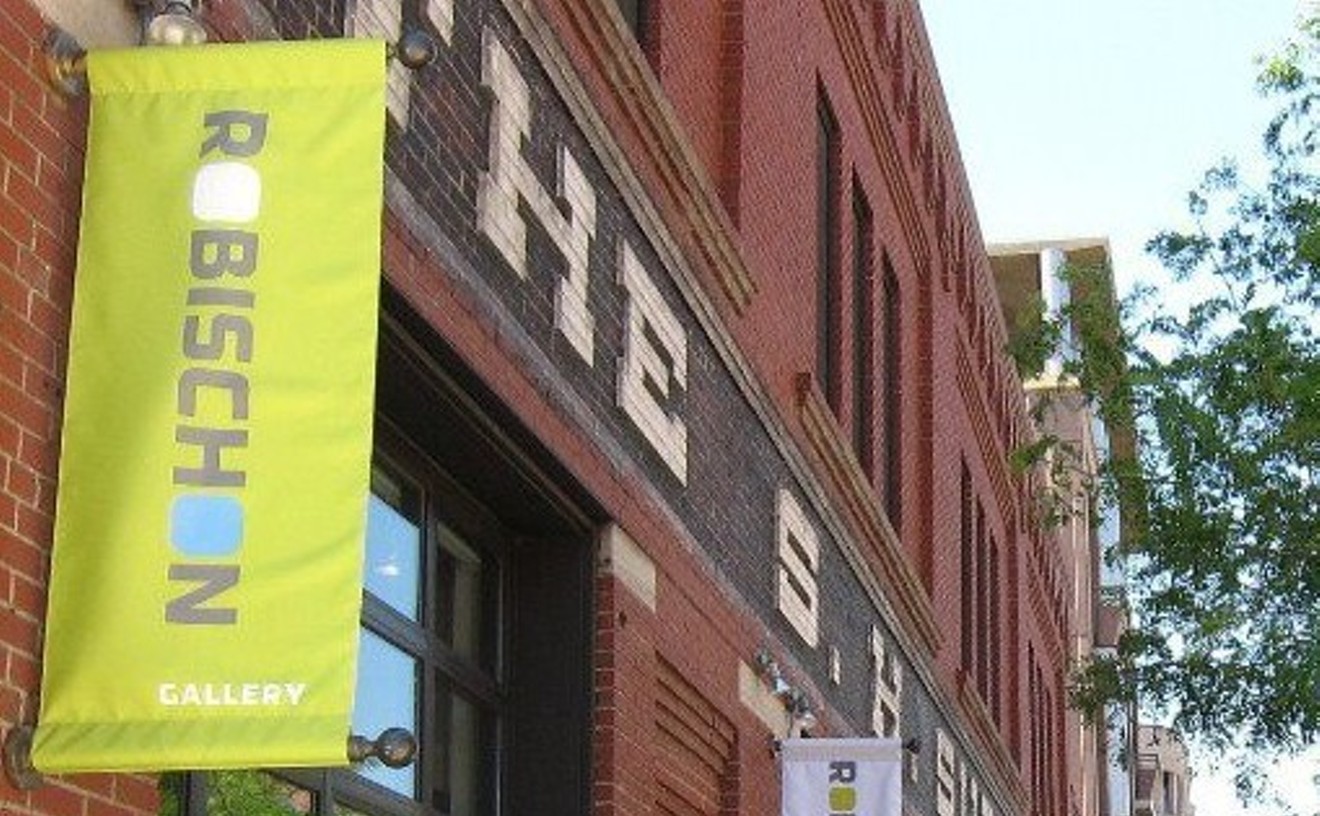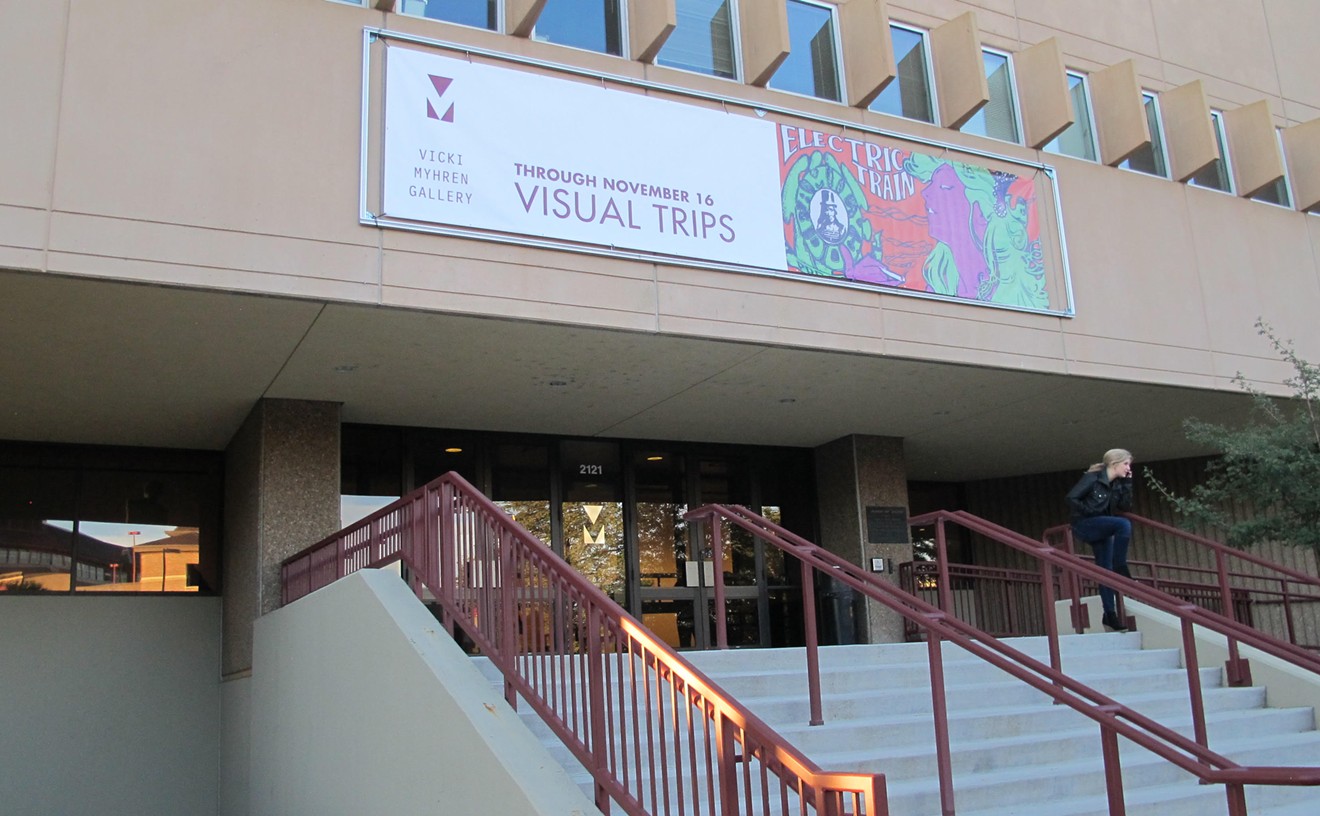Lucy Roucis is a mainstay in PHAMALY, Denver's outstanding company of disabled actors; she herself suffers from Parkinson's. She was a wise and sightly ironic presence for PHAMALY's program of skits, songs and stories, Vox Phamalia: Quadrapalooza; gave a killer performance as a gruff female executive in How to Succeed in Business Without Really Trying; and really shone in The Elephant Man, where she played Mrs. Kendall, an actress, brought in by the doctor so that the grotesquely deformed protagonist can become accustomed to female company. In some of the play's most touching scenes, they develop a genuine bond. "Mrs. Kendall, you are magnificent," the doctor says. And, as played by Roucis — with a warm, low-voiced gravitas through which a spark of impish humor occasionally broke though — she most certainly was.
Best Set
The Taming of the Shrew

What was fascinating about the set created by David M. Barber for the Denver Center Theatre Company's production of The Taming of the Shrew, which was set in 1950s America, was how it melded broad and cartoony elements with others that were subtle and aesthetically pleasing. There was a big map at the back of the stage that tracked the characters' wanderings around the country in lines of light, as well as a number of '50s-style ads for Shakespeare-referencing products hanging at the sides: a car called a Dromio, Viola's Kiss makeup. Petruchio's home was funky, dull-colored and rustic, but Baptista's restaurant was so elegant, the colors melting into each other in shades of pink, silver and purple, that you found yourself wondering what was on the menu and if they'd let you sneak in for a bite.
- 14th and Curtis streets, Denver, 80202 Map
- 303-446-4829
Best Shakespeare Monologue
Kathleen McCall

If you've ever seen The Taming of the Shrew, you remember the tamed Katherine's final speech, the one in which (at her husband, Petruchio's, request), she exhorts the other women in the play — and, by extension, all women — to be obedient to their husbands. The speech is moving and eloquent and really, really hard for most of us to sit through these days. Directors and actors play all kinds of games to deal with the problem, but Kathleen McCall's approach in this year's Denver Center Theatre Company production was the best we've seen. She spoke the words sincerely, even choosing an unexpected recipient for one of the most telling passages — her father — and yet she never abased herself. This wild woman was clearly crazy for her equally wild husband, and she made us understand that any yielding of will was mutual. In her hands, this unpleasant passage became a heartfelt tribute to the transformative power of love.
- 14th and Curtis streets, Denver, 80202 Map
- 303-446-4829
Best Shmoozer for Artists
Action Figures
Several years back, local artist Katie Taft curated Self Made, a stimulating art-talk series at Double Daughter's that eventually outlived its shelf life there. But it wasn't an idea that was ready to be tabled altogether. Taft brought the idea back into play last year, when Action Figures debuted as a monthly event at the Colorado Photographic Arts Center in Belmar. A new opportunity for artists to get together and share ideas and challenges, Action Figures provides both a fascinating look at the artistic process and a kick in the butt for working artists. Go be inspired.
Best Shmoozer for Designers
Red Drinks Denver
Is Denver on the brink of becoming a notable national fashion center? Some people think it could be just that, with the right kind of push. A circle of friends in the local fashion industry — Tricia Hoke, Deb Henriksen, Lisa Elstun and Jose Duran — got to wondering how they could draw the design community closer together to create a more cohesive front. Inspired by the success of Green Drinks, a shmoozer for folks in the environmental arena, they devised Red Drinks, a once-a-month networking get-together where fellow designers can network and share ideas at Double Daughter's over drink specials and snacks. In that welcoming atmosphere, they hear speakers, view fashion and trunk shows, and talk business. On the agenda recently? A presentation about the newly forming Fashion Association of Denver.
- 1632 Market St., Denver, 80202 Map
- 303-623-3523
- doubledaughters.net/Marios_Double_Daughters_Salotto/Home.html
Best Show About Our Hippie History
West of Center
The hippie movement of the '60s and '70s played an important part in Colorado history. Like other spots in the American West, this state was invaded by hordes of young free-thinkers in VW buses; they camped out in Capitol Hill, Boulder, Nederland and Manitou Springs, as well as more isolated spots. West of Center: Art and the Counterculture Experiment in America, 1965-1977, put together by Museum of Contemporary Art director Adam Lerner and his wife, Elissa Auther, attempted to establish an upward reappraisal of the West's place in the art world by celebrating the contributions of this movement. Though different parts of the show dealt with different parts of the West, notably California, the crescendo came in the section devoted to Colorado's legendary Drop City art cooperative near Trinidad, and one of Drop City's founders, Clark Richert, emerged as the clear star of the show. West of Center reminded us that many of the region's master artists came here as barefoot kids with pie-in-the-sky notions about how to revolutionize art and community — and many of them are still trying to do so.
Best Show Saluting Clyfford Still
AB EX: Positions and Dispositions

The opening of the Clyfford Still Museum inspired several other Denver venues to present shows tied to the momentous event, and several of these displays set a very high standard. The most gorgeous example was AB EX, at the museum-sized Robischon Gallery. Designed by Jennifer Doran, who owns the flagship space with her husband, Jim Robischon, AB EX covered a broad range of abstract art. There were mini-solos devoted to four artists: contemporary abstract expressionist Gary Komarin, a protégé of Philip Guston; Manuel Neri, a significant figural abstractionist; Denver's own late, great Dale Chisman; and Still contemporary Robert Motherwell. This roster was augmented by a small group show featuring the work of three followers of Still: Frank Lobdell, Jack Jefferson and Colorado's Charles Strong. AB EX wasn't just one of the best shows in the area over the past year; it ranks as one of Denver's best shows ever.
- 1740 Wazee St., Denver, 80202 Map
- 303-298-7788
- www.robischongallery.com
Best Slow-Moving Documentary
kART Across America
They admit the initial concept was, well, a little crackpot. For local filmmakers Andy Raney and Jeremy Make, the genesis of their movie was a Jäger-fueled discussion of how difficult it was to define American culture after a year of studying abroad. Cut to their bright idea: In order to capture the meaning of art in this country, the former roommates toured the United States in a decrepit, fussy red golf cart named Christine. During the hundred-day-plus trip, Christine broke down much more than a hundred times, but that just gave the two more time to ask the Americans they encountered along the way, "What is your art?" The answers to that question became the basis of the documentary kART Across America, which rated an NPR discussion with Michael Moore.
Best Snapshot of an Art Scene
Faculty Triennial

The University of Denver has featured important artists on its faculty since Vance Kirkland founded the department in the 1920s. Dan Jacobs, director of the Victoria H. Myhren Gallery at the school, is interested not only in DU's illustrious history but in its very vital present, and the latter provided the focus for Faculty Triennial. The university's most famous teacher currently is Lawrence Argent of "I See What you Mean" (Big Blue Bear) fame, but there are other well-known faculty members, including Susan Meyer, Jeffrey Keith, Mia Mulvey, Lauren Mayer and Rafael Fajardo, all of whom took part in the show. Since there was nothing linking the works of these various artists other than their connection to DU, the show wound up providing a glimpse not only of what's now happening on the campus, but also what's happening across Denver's art scene.
- 2121 E. Asbury Ave., Denver, 80210 Map
- 303-871-3716
- vicki-myhren-gallery.du.edu/
Best Sound
Beta

Boasting two Funktion-One systems — one on the main floor and the other on the second level, in the Beatport Lounge — Beta's sound is unrivaled by virtually any club in North America, much less Denver. With more than 100,000 watts of power being pumped into the main floor speakers and a constant tuning process that tweaks the sound system for maximum output, Beta and its Funktion-One system have been among the top five nominees for Best Club Sound System in America at the International Dance Music Awards since 2008. It's not hard to see — or hear — why.
- 1909 Blake St., Denver, 80202 Map
- 303-383-1909
- www.betanightclub.com





